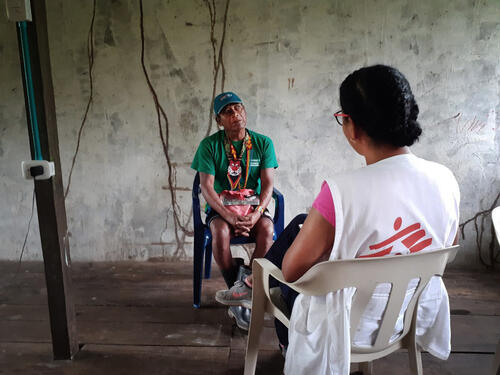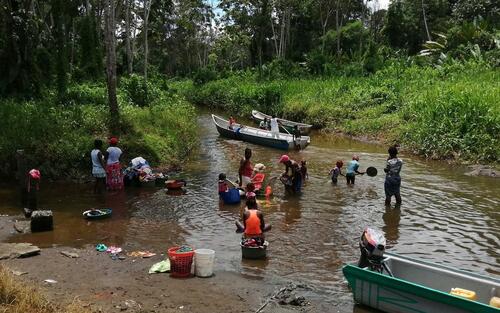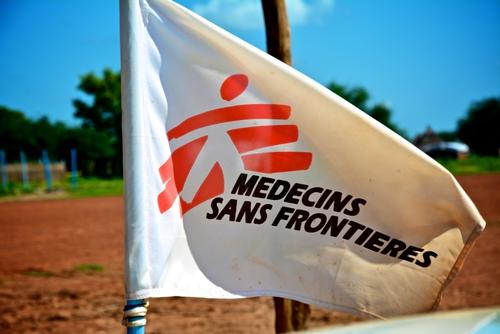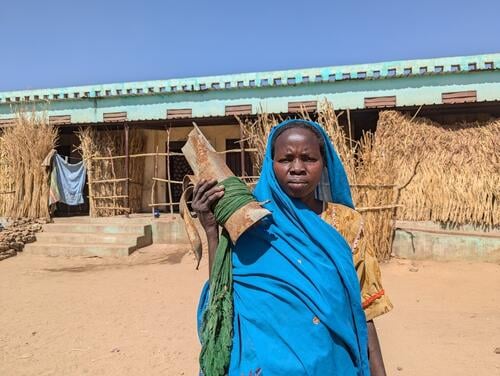Following a temporary respite during the early months of the COVID-19 pandemic, people in the Norte de Santander and Nariño regions of Colombia are experiencing high levels of violence as a result of disputes between various armed groups, including mass killings, assassinations, threats and displacement from their homes.
This is having a serious impact on people’s physical and emotional wellbeing, according to teams from Médecins Sans Frontières (MSF), who are working in the region after supporting the local authorities’ COVID-19 response.
The resurgence of violence in several regions of Colombia began in late 2017, despite the 2016 peace agreement between the government and the Revolutionary Armed Forces of Colombia (FARC). In recent months it has reached levels that recall the worst years of the country’s half-century-long armed conflict.
This year, communities in Magui Payán, Nariño, have had to move seven times due to clashes between armed groups. The groups are fighting to control the territory to take advantage of its strategic location in the Nariño Pacific area. When MSF teams visited communities near the Patía River in early October, they found that all the inhabitants of San Luis village had been displaced from their homes and were sheltering in other towns and villages.
The conflict is chronic, as is the absence of a response by the authorities. The lack of trained medical staff and health facilities make it impossible for people to get treated in an emergency or access basic or mental healthcare.Steve Hide, MSF head of mission in Colombia
In the rural areas of Cúcuta, Tibú and Puerto Santander the situation is similar. In July, some 800 people took refuge in three schools after eight people were killed in Totumito-Carboneras village.
The displaced people included Colombians, Venezuelans and Wayuú indigenous people. MSF teams provided them with emergency medical care, basic healthcare and mental healthcare during the 18 days that they were displaced, and carried out follow-up mental health visits after they returned to their homes.
According to our colleagues, the main effects on people’s physical health when they are displaced or confined to certain areas relate to their living conditions.
A lack of clean drinking water and poor sanitation frequently lead to gastrointestinal disorders and skin problems. In addition, most MSF patients report having had no access to medical services for long periods of time. The lack of appropriate treatment is especially concerning for people with chronic diseases, such as diabetes and hypertension, and for people with mental health disorders.
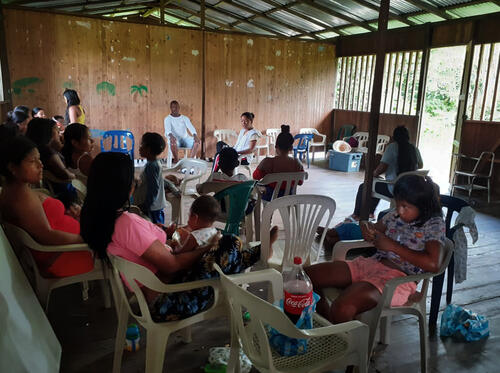
The violence has had a significant impact on people’s mental health, say MSF staff. The impact of repeated confrontations and the permanent sense of risk prevent people from feeling safe and generate high levels of stress and fear, leading to diagnoses of anxiety and depression. The continuing conflict and volatile security situation prevents people from resuming their daily lives.
“As long as the situation remains unstable, people will be exposed to emotional suffering,” says Steve Hide, MSF`s head of mission in Colombia.
The direct effects of violence are exacerbated by the fact that many people have been excluded from healthcare for long periods of time. “The conflict is chronic, as is the absence of a response by the authorities,” says Hide. “The lack of trained medical staff and health facilities make it impossible for people to get treated in an emergency or access basic healthcare or mental healthcare. As the conflict rages, the likelihood of this changing is increasingly slim.”



